Roof Inspection Services in Colorado
Checking out roof inspections goes way beyond just a quick once-over—it's vital to protecting your Colorado home and ensuring your investment is safe from future headaches. Getting a handle on what these services involve, from the gadgets pros use to their specific methods, is critical to knowing when to call in an expert. You'll pick up on how to spot signs of trouble, choose the best service based on things like certification and experience, and get your home ready for an inspection.
We'll also explore what inspectors commonly find and explain the financial implications to help you plan your budget. Scheduling regular roof check-ups extends your roof's lifespan and prevents expensive repairs, keeping your Colorado home solid and weather-ready.
Find A Roofer
Fill out the form below and someone will get back to you as soon as possible
Understanding Roof Inspection Services Colorado
Knowing about roof inspection services is crucial for keeping your Colorado home sturdy and leak-free. Think of these inspections as your home's yearly check-up—essential but often ignored until there's a problem.
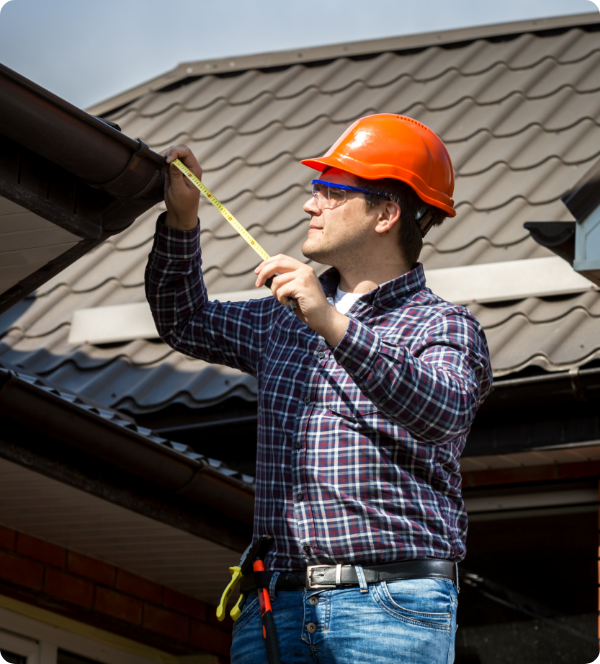
What Do Colorado Roof Inspections Entail?
A thorough roof inspection in Colorado involves a detailed look at both the interior and exterior parts of your roofing system. Whether it's for a home or a commercial building, the inspection process usually checks for signs of wear and tear, such as damaged or missing shingles, compromised flashing, and any problems with gutters and downspouts. Inspectors also look for water damage, leaks, or mold growth, which can indicate deeper issues.
The main difference in inspecting commercial versus residential roofs in Colorado comes down to their design and materials. Commercial roofs are often flat or have a low slope and are made from materials like metal, modified bitumen, or single-ply membranes. These roofs require specialized inspection and maintenance techniques.
On the other hand, residential roofs in Colorado usually have steeper slopes and are made with shingles, tiles, or sometimes metal. While the basic principles of roof inspections are the same, the methods and tools used can vary depending on the roof type.
Colorado roof inspectors use a variety of tools, including drones, infrared cameras, and moisture scanners, to perform a thorough assessment without causing additional damage. These tools are especially useful for spotting issues that aren't immediately visible to the naked eye.
The Tools of the Trade
Drones have transformed the way roof inspections are conducted., allowing professionals to navigate challenging areas safely from the ground. Thermal imaging can reveal hidden moisture problems by highlighting temperature differences across roof surfaces and is a game-changer for technicians. All these tools offer a more comprehensive and precise (literally) assessment of your roof’s health.
However, mastering these tools goes beyond just operating drones or climbing ladders—inspectors need a deep understanding of roofing materials, construction techniques, and typical weak spots. This expertise is crucial for accurately diagnosing existing issues and foreseeing potential ones, ensuring thorough and reliable inspections.
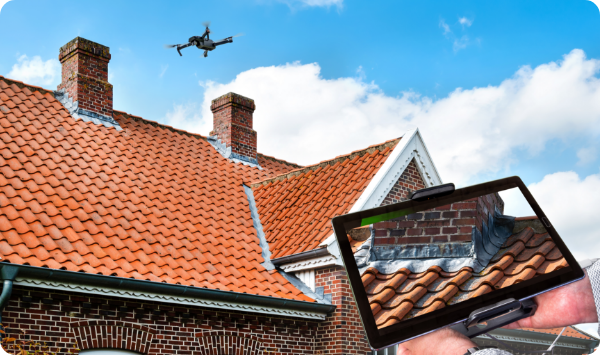
Signs You Need a Roof Inspection
Your roof might exhibit subtle warning signs before escalating into significant repair issues. Detecting these early cues can prevent extensive fixes, saving time and money. Recognizing when a roof inspection is needed is essential for prolonging the lifespan of your roof.
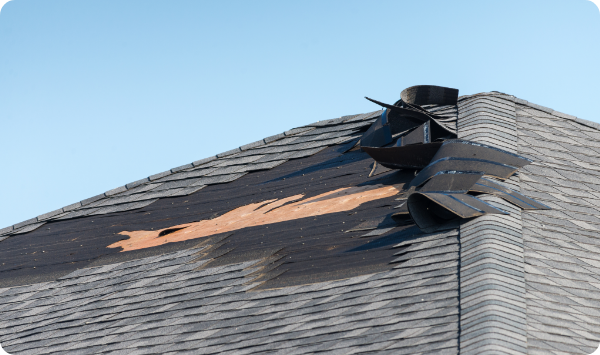
Visible Damage After Extreme Weather
Assessing your roof following severe weather events like heavy storms or hail is wise. Strong winds can dislodge shingles, while hail can cause unseen dents or punctures. At such times, the assistance of skilled professionals armed with ladders and expertise proves invaluable.
Aging Roof Beyond Its Prime
Like fine wine, some things improve with age, but unfortunately, roofs aren't one of them. Most residential roofs are built to endure between 20 and 30 years, depending on the quality of materials and maintenance. If your roof is approaching its limit, an inspection can determine whether repairs or replacements are necessary.
This is especially crucial if you're uncertain about the last inspection or replacement date.
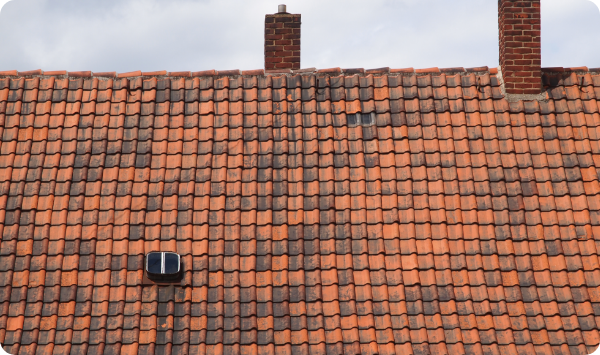
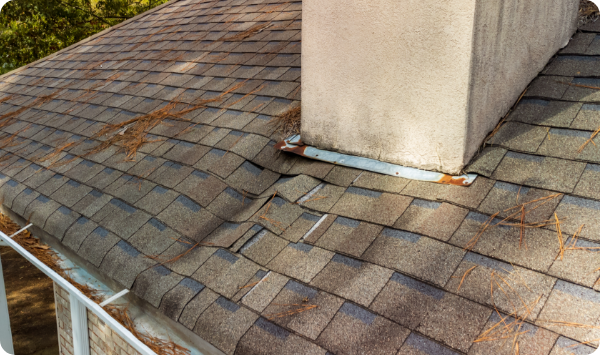
Sagging Areas or Water Damage Signs Inside Your Home
A sagging area isn't just a red flag but can quickly become a pressing issue. It could indicate underlying structural problems that, if ignored, might lead to a catastrophic collapse. Similarly, indoor water stains on ceilings or walls indicate potential leaks requiring immediate attention.
A professional inspection should be in mind to avoid unexpected water leaks indoors during the next rainstorm.
Types of Roof Inspection Services
Exploring roof inspections may feel like finding your way through a maze. However, understanding the different types is easier than you'd think.

Drone Inspections
The future has landed on our rooftops with drone inspections. Now, roof inspectors can utilize cutting-edge technology to observe from above, eliminating the need for risky climbs. By soaring above, drones snag crystal-clear snapshots and footage, uncovering hidden flaws that frequently escape detection from ground level or through traditional methods. It's fast, safe, and incredibly efficient for spotting potential problems before they escalate.
However, it's not just about getting up high; drones offer precision in identifying damage after serious storms or natural disasters. By covering large areas quickly, they help speed up insurance claims and necessary repairs, making them invaluable tools in modern roofing maintenance strategies.
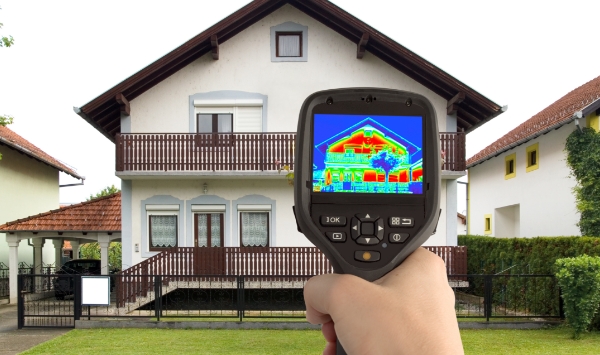
Thermal Imaging Inspections
Some problems aren't always visible to the naked eye. That’s where thermal imaging comes into play. Infrared imaging, by using cameras that perceive temperature disparities, unveils the unseen aspects of your roof's condition. Temperature variations spotted by thermal imaging may signal the presence of moisture, inadequate insulation, or structural damage invisible to the naked eye.
The beauty of thermal imaging lies in its noninvasive nature. There’s no need for direct contact with your roof materials, reducing risk and preserving integrity while uncovering secrets hiding beneath the surface.
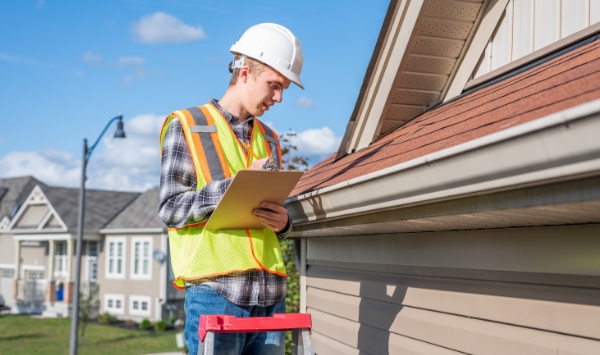
Traditional Hands-On Inspections
Last but certainly not least is the traditional inspection route—a hands-on approach that relies on expert eyes and experience over gadgets and gizmos. Professionals will examine shingles, flashing, gutters, and more for signs of wear, tear, or other damages. While this method might seem old-school compared to flying drones and infrared cameras, a comprehensive assessment remains essential, especially when physical feedback is vital to a diagnosis. Moreover, it instills a sense of comfort to know an experienced expert is looking at your rooftop, protecting the health and longevity of your home with their own eyes.
Choosing the Right Roof Inspection Service in Colorado
Picking a high-quality roof inspection service in Colorado requires expertise, a keen eye for detail, and knowing what to look for. It's like making well-informed choices at work—careful, thoughtful, and thorough.
Accreditation Matters
The first step in finding a top-quality roof inspection service in Colorado is to check for proper accreditation. Accredited services have been thoroughly vetted for their standards and practices, ensuring your money is well spent. Start by looking for members of the National Roofing Contractors Association (NRCA), as they adhere to high industry standards.
Also, look for inspectors with certifications from reputable organizations focusing on roofing or building inspections in Colorado. These credentials confirm their expertise with various roofing materials, from shingles to tiles.

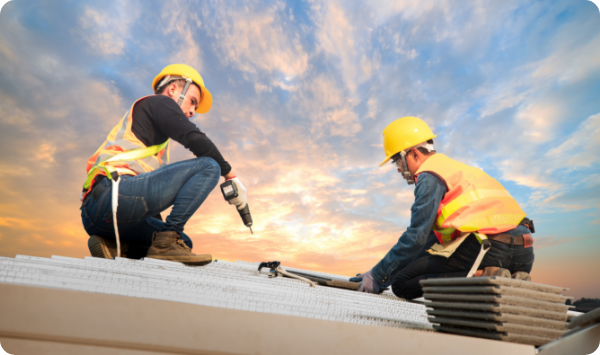
Experience Speaks Volumes
A seasoned roof inspector in Colorado has the knack for spotting problems that might escape others. When checking out an inspector, ask about their years of experience and the range of roofs they've checked out across the state. This knowledge will give you peace of mind knowing they can handle your specific roofing needs.
Ask for examples of tough issues they've tackled and fixed to get a sense of their expertise. Getting to know their successful solutions in the field will reassure you that you're making the right choice for your Colorado home.
Poring Over Customer Reviews
In this digital era, customer reviews are gold when you're picking any service provider, including roof inspectors in Colorado. Sites like Yelp or Google My Business give you a peek into what past customers have to say. Plus, checking out the Better Business Bureau's website can give you the lowdown on the professionalism and results of different Colorado-based companies.
Keep an eye out for trends in these reviews: Are they often talking about thorough inspections? Quick service? Great communication? These little details paint a clearer picture than just reading promotional stuff, helping you make a smart choice for your Colorado home.

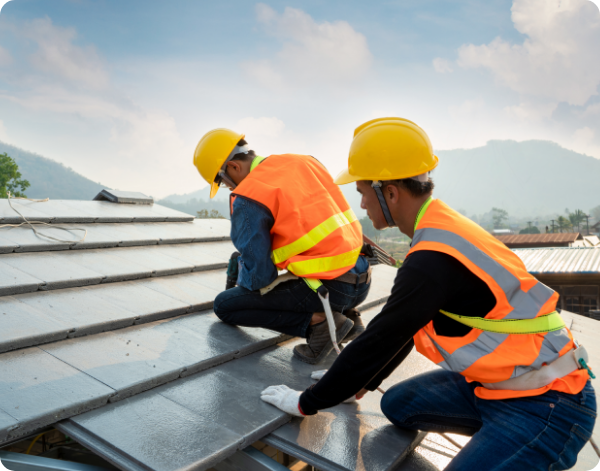
Preparing for a Roof Inspection in Colorado
Getting your roof ready for inspection doesn't need to cause stress, but it does require attention to detail. Here's how you can streamline the process for the professionals and ensure thoroughness.
-
Clean Your Gutters
Blocked gutters are more than just a hassle during heavy rain; they also complicate the task for inspectors assessing water flow and potential obstructions that could compromise your roof's integrity. So, don those gloves and ensure your gutters are clean before inspection.
If you prefer to avoid tackling this task yourself, consider hiring a professional cleaning service. While it may seem like an extra step, clear gutters provide inspectors with unobstructed access, making their job quicker and more effective.
-
Trim Surrounding Trees
While trees enhance your property's aesthetics, they can pose problems when branches hang over your roof. Not only do they increase the risk of storm damage, but they can also obstruct a thorough inspection. Trim any branches too close to touching or hovering above your rooftop.
Taking proactive measures can help reduce hazards and give inspectors clear views, allowing them to identify potential issues that might otherwise remain hidden. -
Ensure Easy Access
Make sure there's clear access all around your home, especially if parts of the roof are challenging to reach without moving obstacles. Move vehicles out of driveways or garages where ladders may need to be placed, and unlock gates leading into backyard areas with attic vents or chimneys that require closer examination. These small steps contribute significantly to facilitating a smooth inspection process.
Common Findings During Colorado Roof Inspections
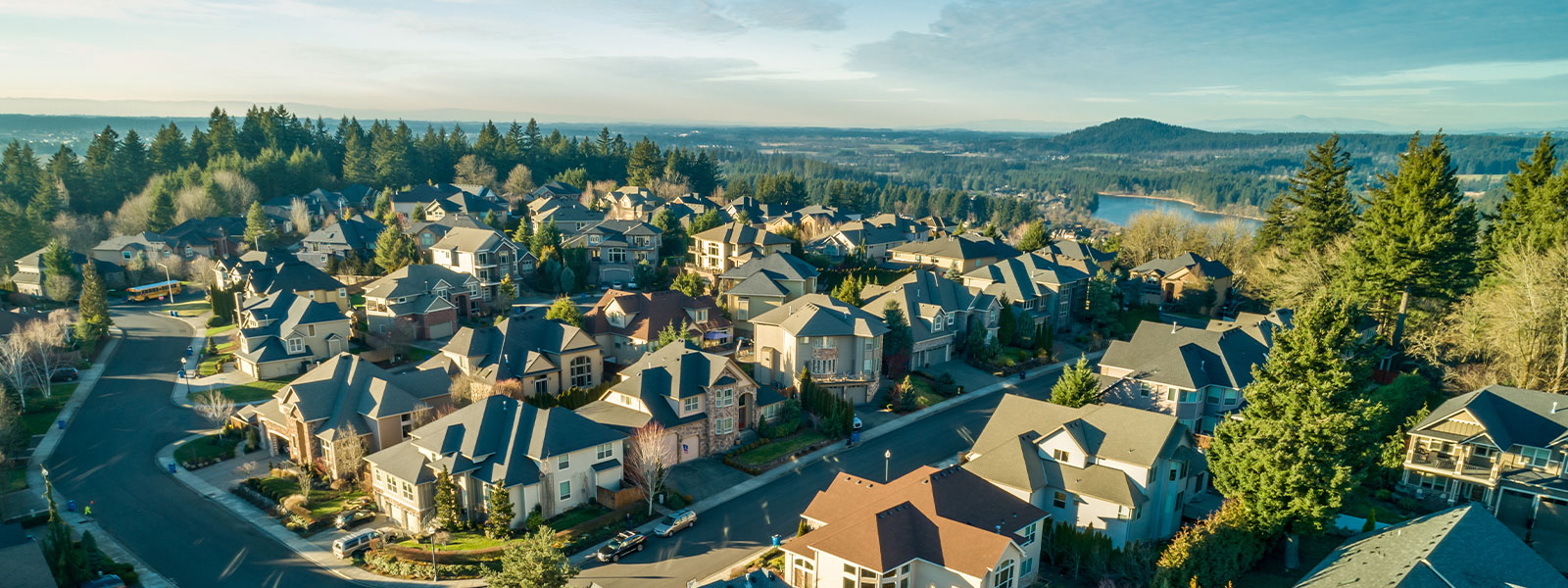
During roof inspections in Colorado, one common discovery is the natural wear and tear caused by the state's unique climate. Exposure to intense sunlight, strong winds, heavy rain, and other environmental elements can gradually wear down roofing materials over time.
This wear and tear might show up as fading, cracking, or the breakdown of shingles or tiles, which can compromise the roof's ability to protect your home from the elements. Regular inspections are crucial because they catch these issues early, allowing for quick repairs or replacements before they become major problems. Additionally, in Colorado, inspectors often come across areas where water has started to collect on flat roofs or where debris has built up, potentially causing leaks and other water-related damage if not dealt with promptly.
The Cost of Roof Inspection Services
The price tag on roof inspection services can vary quite a bit based on different factors, like the size and type of your roof, where your property is located, and how thorough the inspection needs to be. Generally, homeowners in Colorado might expect to shell out between $150 and $700 for a professional roof inspection.
But if your inspection needs fancy tech like drones or thermal imaging, you might be looking at higher costs, maybe even up to $1,200 for bigger or trickier roofs. Plus, some inspectors might offer package deals if you decide to go ahead with repairs or maintenance they recommend after the inspection.
In the grand scheme of things, investing in a thorough roof inspection can save you money by catching small issues before they escalate into pricey repairs.
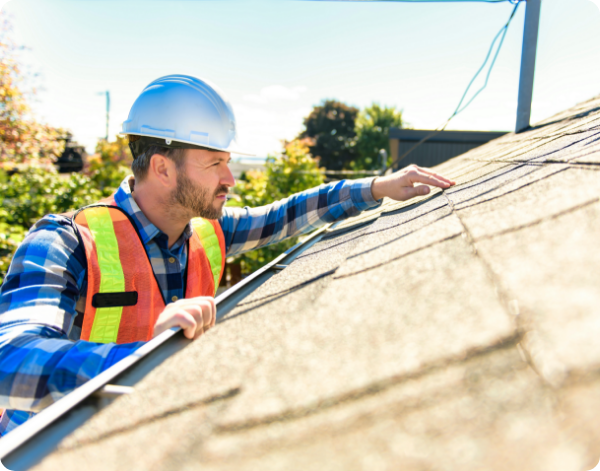
Factors That Influence the Cost of a Roof Inspection
Several factors influence the cost of a roof inspection. Firstly, the roof size plays a significant role; larger roofs require more time and effort to inspect thoroughly, leading to higher fees. The type of roof also affects pricing, as different materials or designs may necessitate specialized knowledge or equipment for proper evaluation.
Location is another key consideration; properties in areas with higher living costs or challenging accessibility may incur additional inspection expenses. The need for specialized inspections, such as those utilizing drones or thermal imaging technologies, can further contribute to the overall cost due to the advanced equipment and expertise required.
Lastly, the current condition of the roof can impact the cost. A roof that has been neglected or shows signs of significant damage may require a more detailed inspection to accurately assess its condition and identify necessary repairs, thus increasing the overall cost of the service.
Benefits of Regular Roof Inspections
Regular roof inspections are essential for maintaining the safety, functionality, and aesthetics of your home. They serve as a proactive measure that can save homeowners significant time and money by identifying minor issues before they become major problems.
Early Detection of Potential Issues
Regular roof inspections are crucial for the early detection of potential problems that could escalate into significant damage if left unaddressed. Through these evaluations, professionals can identify minor issues such as small leaks, missing shingles, or wear and tear before they lead to more serious problems like water damage, mold growth, or structural weaknesses.
Extending Roof Lifespan
Another significant benefit of routine roof inspections is the potential to extend the lifespan of your roof. By identifying and fixing minor damages or wear before they develop into larger issues, you maintain the overall integrity of your roof. Regular upkeep, facilitated by these inspections, ensures roofing materials function effectively for as long as possible, delaying the need for a complete roof replacement and maximizing your investment.
Improved Energy Efficiency
Roof inspections can also improve energy efficiency in the home. Inspectors can identify areas of inadequate insulation or ventilation that can lead to higher heating or cooling costs. Correcting these issues helps maintain a comfortable indoor climate and reduces the energy consumption of heating and cooling systems, leading to lower utility bills.
Enhanced Safety
Safety is a paramount concern that regular roof inspections address. If left unnoticed, compromised roof structures can pose significant risks to inhabitants. Inspections ensure that structural integrity issues are identified and rectified promptly, reducing the risk of collapses or other dangerous scenarios.
By minimizing the chances of water intrusion, regular inspections help prevent the growth of mold and mildew, which can have serious health implications for residents.
Insurance and Warranty Advantages
Lastly, regular roof inspections can positively affect homeowners’ insurance and warranties. Many insurance policies require or highly recommend routine inspections and maintenance to keep coverage valid.
Additionally, warranties offered by roofing manufacturers often stipulate regular inspections as a condition of the warranty. Compliance with these requirements ensures you remain covered, providing peace of mind and financial protection against unexpected roofing issues.
FAQs about Roof Inspection Services
-
How much does a roof inspection cost in US?
The cost of a roof inspection in the US typically ranges from $150 to $500.
-
How long does a roof last?
The lifespan of a roof varies depending on factors like material, climate, and maintenance, but asphalt shingle roofs typically last 20-30 years.
-
How much does it cost to repair a roof in the US?
Roof repair costs in the US can range from $300 to $1,500, with the average cost being around $750.
Get started today!
It only takes a few moments to find your roofer.
Find A Roofer
Fill out the form below and someone will get back to you as soon as possible